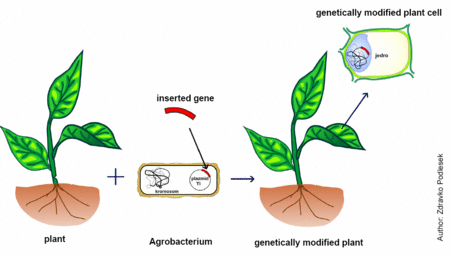
|
INTRODUCTION
GENETICALLY MODIFIED ORGANISMS
LEGISLATON
COMPETENT AUTHORITIES
PROFESSIONAL ASSISTANCE
GMOS IN SLOVENIA
EVENTS
LEGISLATION
GMOS IN EU
CARTAGENA PROTOCOL
BCH CENTRAL PORTAL
NATIONAL BCH
USEFUL LINKS
|
|
Definitions
According to Slovene legislation ''GMO is an organism, with the exception of human beings, or a micro-organism, in which the genetic material has been altered in a way that does not occur naturally by mating or natural recombination.'' (Management of Genetically Modified Organisms Act (Official Gazette of RS No. 23/2005 and 21/2010))
According to EU legislation ''GMO means an organism, with the exception of human beings, in which the genetic material has been altered in a way that does not occur naturally by mating and/or natural recombination.''(Directive 2001/18/EC of the European Parliament and of the Council of 12 March 2001 on the deliberate release into the environment of genetically modified organisms and repealing Council Directive 90/220/EEC - Commission Declaration)
According to international Cartagena Protocol ''Living Modified Organism (LMO) means any living organism that possesses a novel combination of genetic material obtained through the use of modern biotechnology.'' (Cartagena Protocol on Biosafety to the Convention on Biological Diversity)
Present status
Until now mostly genetically modified plants were put on the market. In 2008 there were 125 millions hectares planted with genetically modified plants. Genetically modified plants were grown in 25 countries, among them are 7 EU Member States. The most widened genetically modified plants are soybean, maize, cotton, oilseed rape, less widened are pumpkins, papaya, alfalfa and rice.
List of authorizations granted for use of GMOs for food and feed
List of GSO applications for use of GMOs for food and feed
List of GMOs granted for the deliberate release and placing on the market
More on GMOs
Publication for children Genetically Modified Organisms |
